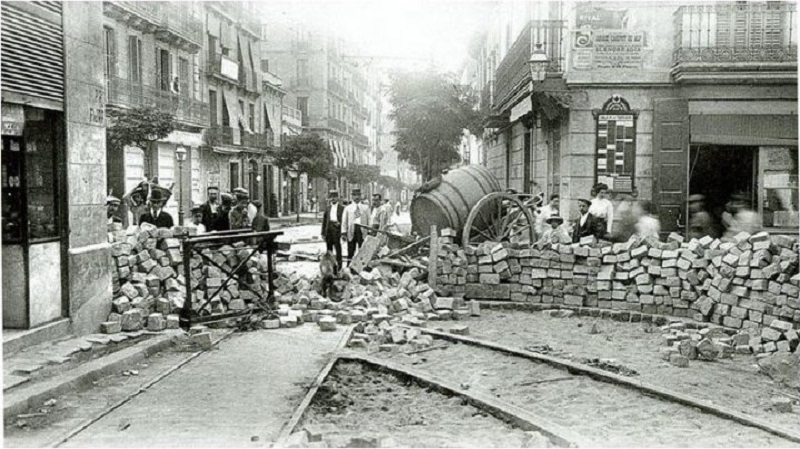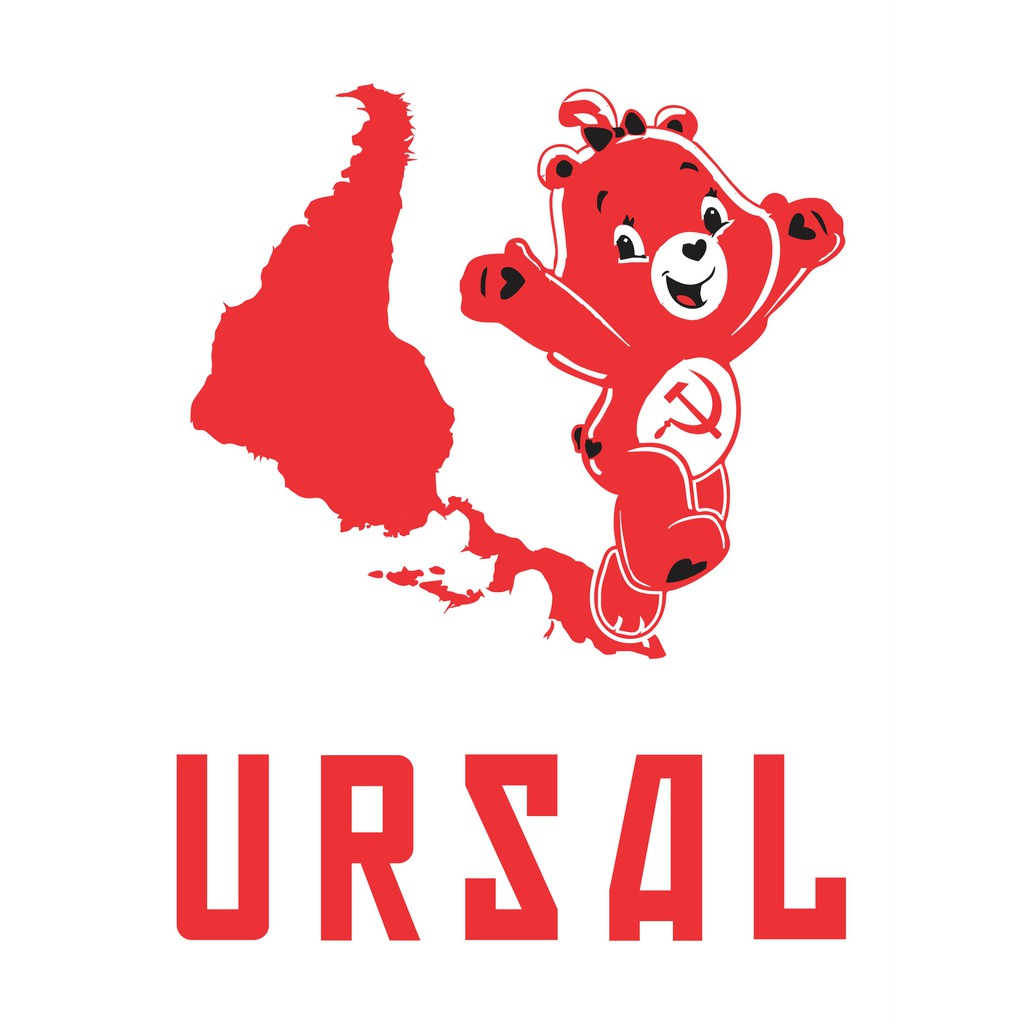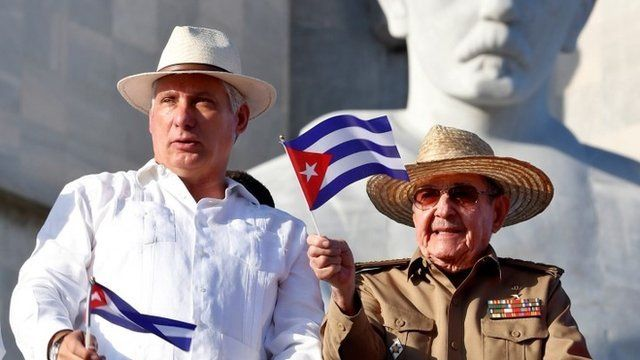On the 7th of january in 1919, the "Semana Trágica" began in Argentina when police attacked striking metalworkers in Buenos Aires, killing five, after workers set the police chief's car on fire. The city was quickly placed under martial law.
The "Semana Trágica" (Tragic Week in English, not to be confused with the Spanish Tragic Week) was the violent supression of a general workers' uprising, beginning with the attack on January 7th. In addition to the actions of the police and military, right-wing vigilantes launched pogroms against the city's Jews, many of whom were not involved, in order to suppress the rebellion.
The conflict began as a strike at the Vasena metal works, an English Argentine-owned plant in the suburbs of Buenos Aires. On January 7th, workers overturned and set fire to the car of the police chief Elpidio González. Militant workers also shot and killed the commander of the Army detachment protecting González. Following this, police attacked, killing five workers and wounding twenty more.
On the same day, maritime workers of the port of Buenos Aires voted in favor of a general strike for better hours and wages. After the police attack at Vasena, a waterfront strike began: all ship movements, and all loading and unloading, came to a halt.
Rioting soon spread throughout Buenos Aires, and workers battled with both state and right-wing paramilitary forces. Police utilized members of the far-right Argentine "Patriotic League", who targeted the city's working class Russian Jewish population, which they associated with the rebellion, beating and murdering many uninvolved civilians.
On the 11th, the city was placed under martial law, and the military restored control over the city over the next several days. Estimates of the death toll range from between 141 to over 700. The United States embassy reported that 1,500 people were killed in total, "mostly Russians and generally Jews"
La Semana Trágica - el historiador

Megathreads and spaces to hang out:
- ❤️ Come listen to music and Watch movies with your fellow Hexbears nerd, in Cy.tube
- 💖 Come talk in the New Weekly Queer thread
- 💛 Read and talk about a current topics in the News Megathread
- ⭐️ September Movie Nominations ⭐️
reminders:
- 💚 You nerds can join specific comms to see posts about all sorts of topics
- 💙 Hexbear’s algorithm prioritizes comments over upbears
- 💜 Sorting by new you nerd
- 🌈 If you ever want to make your own megathread, you can reserve a spot here nerd
- 🐶 Join the unofficial Hexbear-adjacent Mastodon instance toots.matapacos.dog
Links To Resources (Aid and Theory):
Aid:
Theory:



I was wondering, can a tribal confederacy ever be able to mobilise the resources required to industrialise at scale? Like, could the Pashtuns modernise Afghanistan without there necessarily being an Afghanistan nation-state to begin with?
I always thought the whole "afghanistan isn't a real nationstate" narrative was just the US gov't coping really hard about the fact that nobody wanted to work for their comprador government. Like how are ethnic relationship between Pashtuns and Tajiks any different than between White Americans and Hispanic Americans? It's not even rhetorical, I literally see the "they don't have a real national identity they mostly just identify with their tribe" argument used on Chinese sites against America the same way Americans use it against Afghanistan. IMO it's a stronger argument against America than against Afghanistan because at least in Afghanistan almost all the ethnic groups are Iranic language speakers who have been living alongside eachother for millennia.
See, I think they do tend to be more loyal to their smaller tribal units (at least pre-Taliban) but can and do form larger tribal congregations that just never incarnated into a state. However, my view on the issue is informed more by my understanding of the Maratha Empire (which I’m quite familiar with) rather than the Afghans, so I could be patently wrong.
I got the impression that the Taliban was more or less an attempt to create a state, or something very like a state, with a unified set of religious beliefs in the post-Soviet era. I don't think there was necessarily much centralization of authority, but from what I understand (admittedly little), it was born out of a shared religious identity and shared beliefs. The pro-social elements, such as they are, specifically crushing the cultivation of opium and trying to stop heroin use, seem to have arisen from a genuine pro-social sentiment and a desire to help their fellow people and improve society.